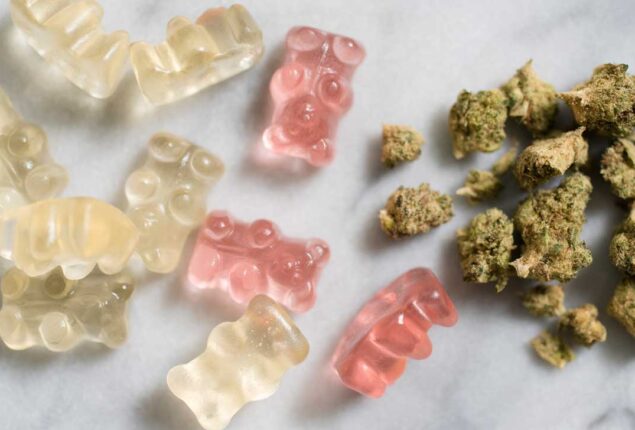Toxic spinach causes critical health problems in Australia
Consumers experienced severe nausea and hallucinations. The spinach, according to Riviera Farms,...

Young teenagers consuming marijuana edibles by mistake soars
According to a study published on Tuesday in the journal Pediatrics, more young children are becoming ill after unintentionally consuming marijuana edibles.
According to the study, there was a 1,375% increase in calls to poison control centres about children under the age of 5 eating THC-containing edibles from 207 in 2017 to 3,054 in 2021. Tetrahydrocannabinol, also known as THC, is the psychoactive component of marijuana.
About 97% of the children discovered the foods at home.
The National Poison Data System, a database that collects reports of poisonings, was used as the basis for the findings, which were based on more than 7,000 paediatric cases.
According to Dr. Antonia Nemanich, a co-author of the study and an assistant professor of emergency medicine and toxicology at Rush University Medical Center in Chicago, the increase was most likely caused by the combination of more states legalising recreational marijuana and the coronavirus pandemic, which caused more children to stay at home.
According to Nemanich, edibles are frequently packed to resemble candies or cookies, and adolescents who are unaware of the danger they bring will occasionally consume a few of them at once.
They are unaware of what it is and when to stop, she claimed.
The survey indicated that 2- and 3-year-olds were the subjects of somewhat more than half of the reports, followed by 4-year-olds (18%), 1-year-olds (15%), and 5-year-olds (13%). A total of 1.9% of the calls were from babies.
According to specialists, overeating can cause major health issues in young children, such as confusion, hallucinations, a rapid heartbeat, and vomiting. In extreme circumstances, children may have respiratory difficulties or possibly go into a coma. The severity typically varies according on the size, age, and cannabis consumption of the youngster.
For the medical professionals caring for them, it “may be pretty concerning,” Nemanich said.
According to the study, 8.1% of the children who were admitted to the hospital needed critical care. No fatalities were noted.
The findings, according to Dr. Sam Wang, an emergency medicine specialist and paediatrician at Children’s Hospital Colorado, reflects what he observes in his facility.
The majority of cases at the Colorado hospital, according to Wang, have been “pretty mild,” with children frequently experiencing sleepiness or loss of balance. However, in a few rare cases, Wang has seen kids who needed to be put on ventilators to help with breathing or kids who had slipped into comas. Wang was not a part of the study.
Philadelphia has reported similar findings.
According to Dr. Kevin Osterhoudt, the medical director of the poison control unit at Children’s Hospital of Philadelphia, “I think the pattern that we’re seeing is well-represented by this study.” Emergency doctors have noticed what they perceive to be a substantial rise in both young children and teenagers presenting to emergency rooms for THC intoxication across the nation.
Osterhoudt, who wasn’t engaged in the research, claimed that some producers had started to up the THC content in their edible goods. That might cause the number of unwell youngsters to increase even further.
According to him, an edible can have a maximum dosage of 100 milligrammes, but even adults frequently start with less than that. Products can include as much as 500 mg of THC in some areas, especially those where recreational marijuana use is illegal and unregulated, he continued.
Wang demanded restrictions on the methods marijuana producers can use to market their goods, including rules to make sure that the advertising isn’t directed at youngsters.
According to Nemanich, parents can keep the delicacies out of sight by placing them either high up on shelves or behind locked doors.
People should be able to enjoy these items, she insisted. We merely want children to be secure.
Osterhoudt went even farther, saying that keeping edible THC products out of one’s house would be the safest course of action for parents of small children.
Catch all the Health News, Breaking News Event and Latest News Updates on The BOL News
Download The BOL News App to get the Daily News Update & Follow us on Google News.